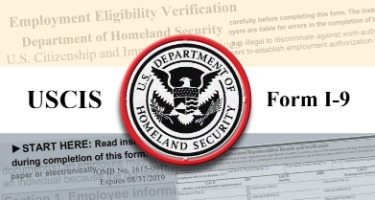Over the last several months, employers nationwide have been required to learn how COVID-19 spreads, the best way to maintain (or return to) a safe work environment, and how to navigate the treacherous shoals of new and existing laws and regulations the pandemic has ushered forth. They’ve also had to contend with a growing wave of coronavirus-related employment litigation and agency actions, particularly wage-and-hour claims. A review of Ogletree Deakins’ COVID-19 Litigation Tracker shows two primary wage-and-hour claims emerging.
The first involve claims under the Families First Coronavirus Relief Act (FFCRA) for violations of the Emergency Paid Sick Leave Act and the Emergency Family and Medical Leave Expansion Act. Both provide paid leave for workers affected by the virus, as well as by school and day-care facility closures. A burgeoning number of suits allege that workers were denied leave mandated by these laws.
The second are more traditional wage-and-hour claims, whose evolution the pandemic has hastened. Of particular importance are challenges to exempt status under the Fair Labor Standards Act (FLSA), which mandates that most employees be paid at least the federal minimum wage, plus overtime pay no less than time-and-a-half for all hours over 40 in a workweek. However, it contains an exemption from both minimum and overtime pay for those who occupy bona fide executive, administrative, professional, and outside sales positions.
For an individual to qualify for the executive exemption, all of these four factors must apply:
- The employee must be compensated with a salary (as defined in the regulations) at not less than $684 per week;
- The employee’s primary duty must be managing the enterprise or managing a customarily recognized department or subdivision of the enterprise;
- The employee must customarily and regularly direct the work of at least two other full-time employees or their equivalent; and
- The employee must have the authority to hire or fire other staffers, or the employee’s suggestions and recommendations regarding the hiring, firing, advancement, promotion, or any other change of status of other workers must be given particular weight.
When federal, state, and local closure orders were issued this spring, many employers were forced to furlough or terminate a large portion of their workforce and continue operations with managers performing tasks typically done by non-exempt staffers. For example, many restaurants furloughed or laid off their hourly waitstaff due to occupancy restrictions and lockdown orders; in turn, exempt managers began doing those jobs. Plaintiffs’ attorneys are now challenging the exempt status of managers based on these redefined roles, arguing that the managers no longer met the “primary duties” test under the FLSA.
The way employers interact with their workers will remain in flux at least through early 2021.
It’s likely that we’re seeing just the first trickle of what will be a flood of COVID-19-related employment litigation, given the disruption in the courts as well as scientific uncertainty regarding the timetable for a vaccine. One thing is certain: The way employers interact with their workers will remain in flux at least through early 2021. The time remaining will enable employers to adapt somewhat and implement the following defensive strategies to mitigate their exposure to COVID-related claims:
- ensuring that all relevant policies are up to date, including (but not necessarily limited to) those related to non-harassment, anti-discrimination, anti-retaliation, the Family and Medical Leave Act, the Emergency Paid Sick Leave Act, and the Emergency Family and Medical Leave Expansion Act under the FFCRA (for companies with fewer than 500 employees), interactive process/reasonable accommodation issues, and remote work;
- educating managers, supervisors, and human-resources professionals about the relevant policies, as well as steps to take if an employee requests a policy dispensation and/or expresses concerns regarding noncompliance;
- preparing a COVID-19 workplace safety plan, communicating it to all employees, ensuring compliance with it, investigating and addressing any reported concerns, and documenting the investigation and its outcome;
- conducting (if applicable; note that restrictions on permissible testing exist in some jurisdictions) health screenings, temperature checks, and/or other examinations such as viral testing, oral testing, and oxygen testing; and ensuring compliance with social-distancing requirements, confidentiality of any records created, and the mandates of applicable privacy laws;
- documenting steps taken after an employee reports a positive and/or presumptive COVID-19 diagnosis, and complying with all state guidelines and CDC recommendations on quarantine time frames and parameters for returning to work;
- if adjusting compensation, providing notice of changes as required by applicable state laws;
- if reducing the workforce, providing appropriate notice and ensuring that selection criteria are nondiscriminatory;
- staying abreast of new laws and all other legislative developments.
Especially as we approach the end of the year, employers should take the opportunity, amid the time they still have, to be sure they’ve adequately mitigated the ongoing risk of COVID-19 employment litigation.
James T. McBride is an employment law litigator and counselor with Ogletree Deakins based in the firm’s Dallas office. James’ experience spans multiple industries with a particular focus on the hospitality industry, restaurants, private equity firms, and manufacturing companies. James provides advice and counsel on designing and implementing proactive policies to assist national employers.
































